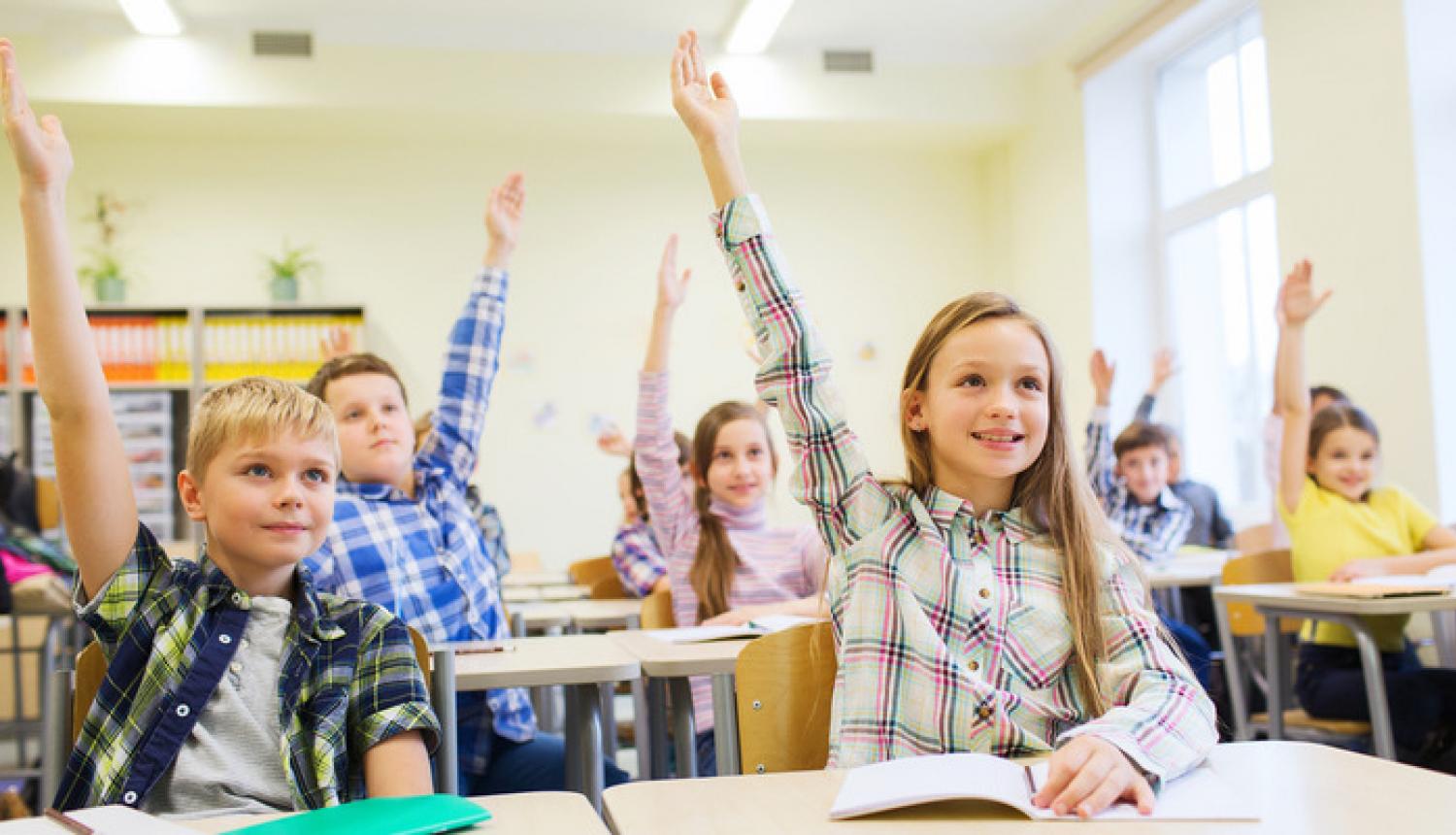In the context of further implementation of the tasks delegated to the Ministry in the Action Plan of the Government, it is planned to introduce learning in grade 1 from the age of six from 1 September 2019 - as envisaged by the amendments to the Law on Education and Law on General Education prepared by the Ministry of Education and Science that were approved by the Government on 3 April 2018.
According to the amendments, if the child's age changes after 1 September, parents will have the opportunity to choose to postpone the commencement of primary education until 1 September next year. Also, according to the opinion of the family doctor, psychologist, the child will have the opportunity to study in the preparatory program for one more year, and commence the first grade at the age of seven. Children will have the opportunity to study in the first grade in the well-known environment - a pre-school educational institution, which, upon obtaining a license, will be able to implement an educational program of grade 1. In addition, the lessons will be 35 minutes long in grade 1.
A number of amendments to the Law on General Education have been encouraged to organize and unequivocally interpret normative documents (national education standard, educational programs, sample curricula), which are particularly important when introducing a competency-based curriculum. It is planned that the amendments to the Law on Education will determine that one of the special types of educational programs is the International Baccalaureate Diploma Program that is currently practiced in a number of state gymnasiums.
The draft law envisages changing the existing regulation regarding the forms of organization of training, where only one of them - a lesson - is mentioned in the current regulatory framework. The amendments will increase the autonomy of educational institutions, enabling the principal of the school to determine also other forms of learning, within the scope of lessons and time prescribed by the law. Learning can take place in a wide variety of places - in school, in a library, in a museum, in an enterprise; students can work individually and in groups, solving large-scale, interdisciplinary tasks and projects, using a variety of forms of learning, not only a 40 minute long lesson.
In order to select the pupils in accordance with the goals set by the state and the institution itself, it is envisaged that the state gymnasium is entitled to organize both entrance examinations and set the admission criteria when admitting pupils to the basic education program from grades 7 to 9 with the permission of the founder.
It is also planned to introduce stricter conditions for the admission to secondary schools, enabling the schools to determine the admission criteria for grades 10, 11 and 12. In order to improve the typology of general education institutions and to clearly separate the functions of each type of educational institution in the implementation of education programs, the draft law envisages the establishment of two types of general secondary education institutions: secondary schools and state gymnasiums – a status of a general secondary education institution (secondary school). Thus, the evening (shift) secondary school and local government’s gymnasiums are excluded from the typology of educational institutions. The amendments stipulate that it will be possible to continue the implementation of evening (shift) secondary education programs in secondary schools, like the day, evening and part-time programs implemented by higher education institutions.
By the amendments to the Law on Education, it is also intended to define forms for the acquisition of full-time, part-time and distance learning education by characterizing the specific features of each form.
One of the important goals of the development of education is the provision of inclusive education, increasing the opportunities for participation of every child in the learning process, extracurricular activities and cultural processes. Therefore, as regards the development of special education, the Ministry of Education and Science believes that there is the need to establish, develop and maintain a network of special educational institutions, which would be made up of infrastructure-friendly, specialized educational institutions appropriately equipped for children with special needs, which implement the priorities in special education that are significant for both the state and the city / the region.
Therefore, it is planned that from 1 September 2020, there will be two types of special education institutions – special schools established by local governments or private, and special schools established by local governments, which have been granted the status of a special education development centre.
It is planned that from 1 September 2018, children will no longer be enrolled in pedagogical adjustment programs, but the schools may continue the already launched pedagogical adjustment programs until 30 June 2019. Pedagogical adjustment, by its nature, is intended as a set of temporary supplementary pedagogical assistance measures for children who need an individual approach to achieve the goals set in the National Basic Education Standard. The Ministry of Education and Science believes that, during the study process, every child should receive timely and individualized pedagogical support rather than a separated environment in a separate pedagogical adjustment curriculum should be developed.
The amendments to the laws were developed by the Ministry of Education and Science in cooperation with social and cooperation partners – representatives of the education and science system of Latvia, trade unions, the Ministry of Welfare, the Ministry of Health, the National Children's Rights Protection Inspectorate, the Latvian Association of Local and Regional Governments, the municipal education boards, local governments special boarding schools of local governments, schools and pre-school educational institutions.
The amendments to the Law on Education and the Law on General Education that were approved by the Cabinet of Ministers today can be found on the website of the Cabinet of Ministers.
For the amendments to become effective they have to be adopted by the Saeima.
Information prepared by:
Ministry of Education and Science
Communication Division
Phone. 67047704, mob.: 25728536
E-mail: prese@izm.gov.lv



